Last-Minute NYC Holiday Gift Guide 🎁
We’ve created a holiday gift guide with presents for the intrepid New Yorker that should arrive just in time—

The Columbus Circle Station was the first station to be structurally completed, as early as 1901. According to Philip Ashforth Coppola, in Silver Connections, it was completed so far in advance of the subway’s opening in 1904 that the “architects used its walls as an art gallery, experimenting with decorative ideas in various colors of tiles and other materials.” When the Heins & LeFarge and Grueby Faience Company tiles were chosen to decorate the subway, the experimental works of art were left in place, hidden behind a wall. No one is quite sure why they were left in place, or how many of them might remain hidden in the station.
American Encaustic Tiling Company prototype tile:
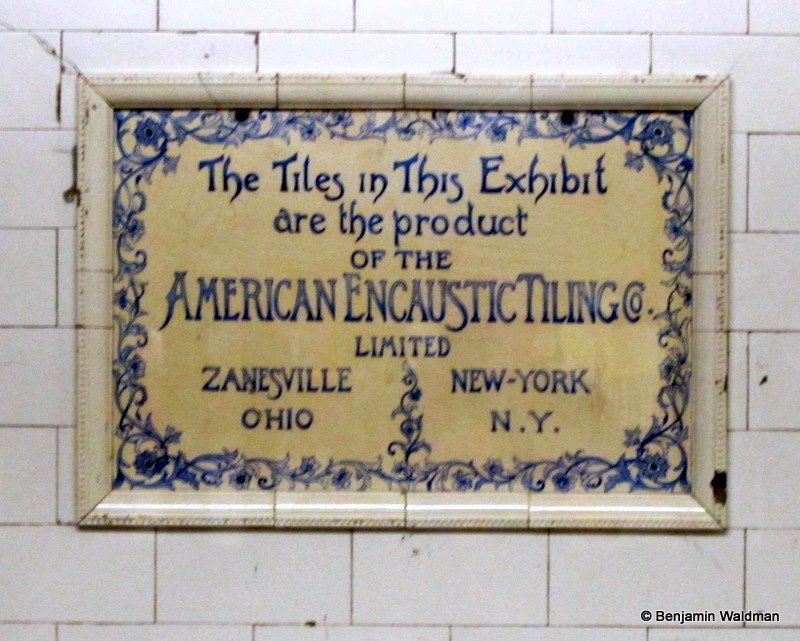
In 2007, when an extensive rehabilitation of the Columbus Circle station began, some of these prototypes were revealed. The first was a blue and white Art Nouveau plaque manufactured by the American Encaustic Tiling Company. This plaque has since been restored and is currently on display on the uptown 1 train platform. Following, the discovery of this plaque, and some plain white subway tile prototypes, in 2010 the MTA unearthed a decorative mosaic. The mosiac, which was also discovered on the uptown 1 train platform, did not make the final cut for some unknown reason. As a result, it was hidden away for more than a century. The MTA stated that they would design a window in order to display the mosaic. Unfortunately, the mosaics are currently hidden away while we wait on the MTA to fulfill their promise.
The newly discovered mosaic subway tiles :
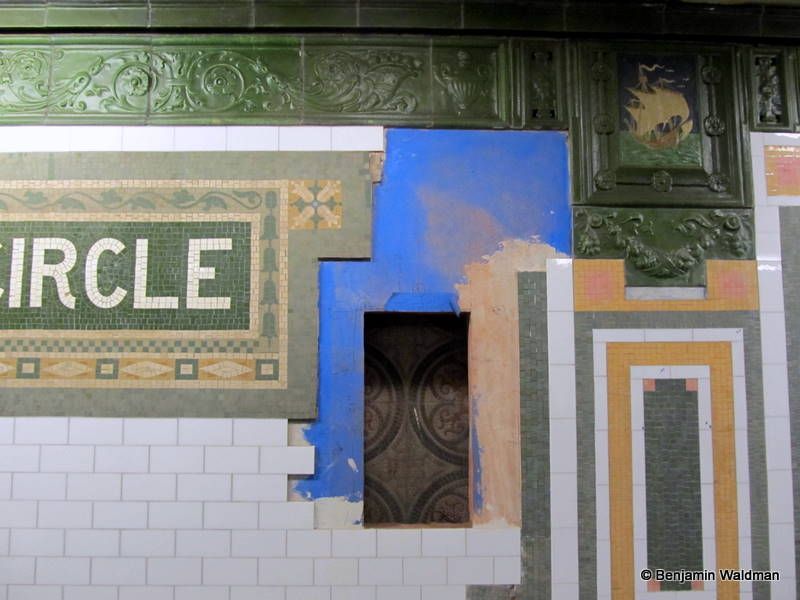
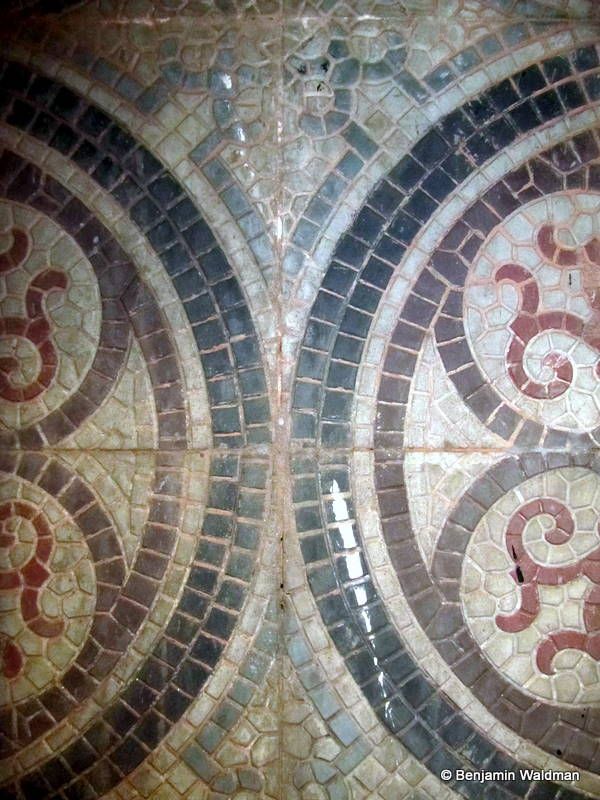
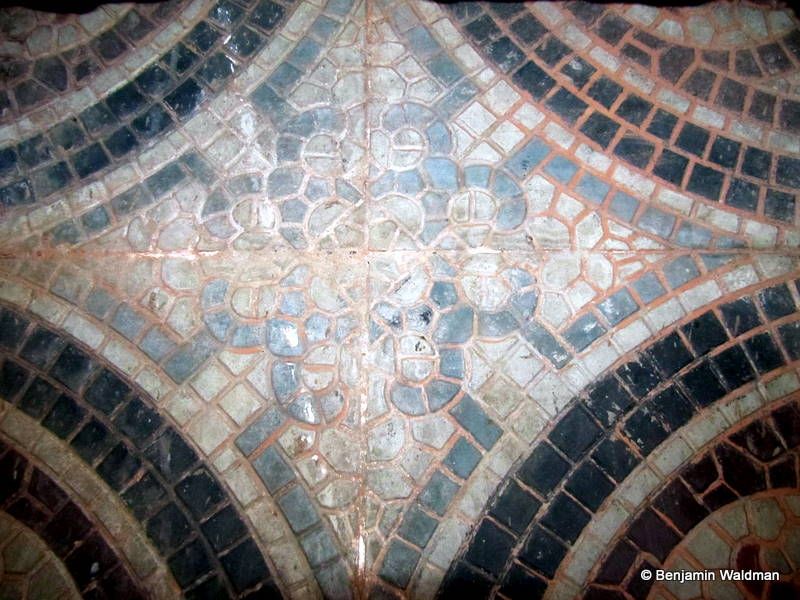
Currently, they are hidden behind this piece of wood, waiting for the MTA to fulfill their promise:
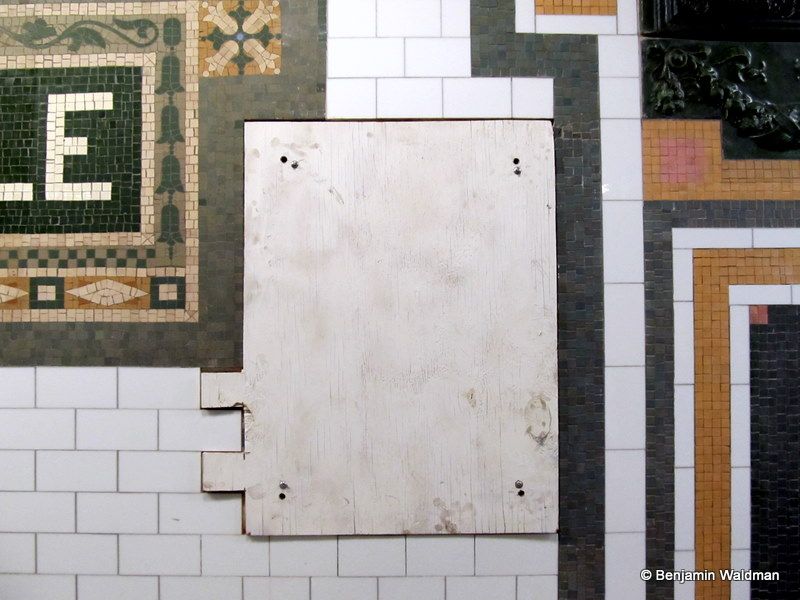
Subscribe to our newsletter